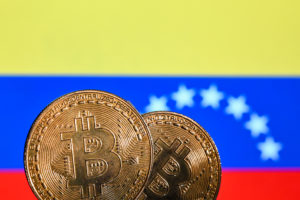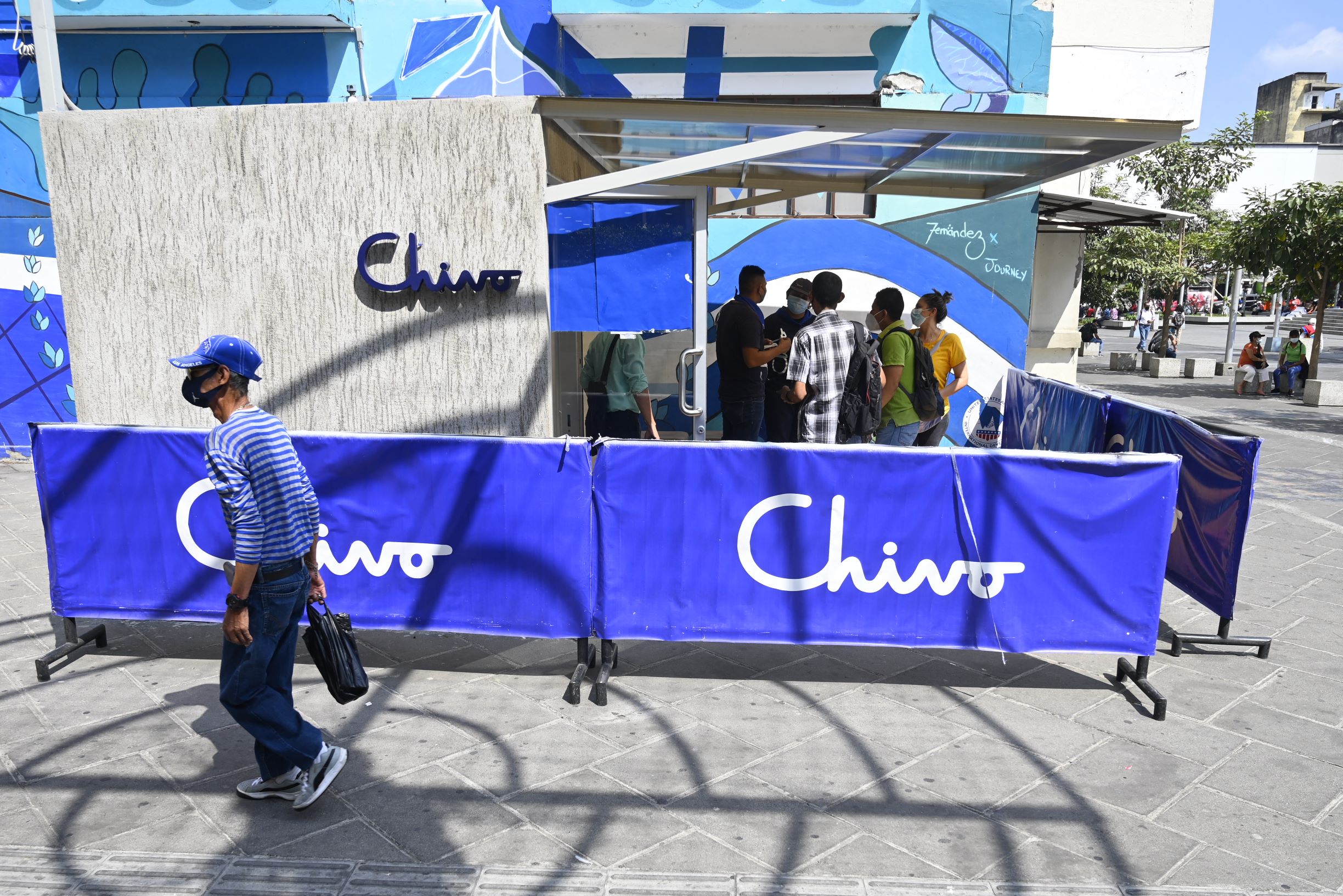During the COVID-19 pandemic, life as we knew it changed dramatically as activities, both licit and illicit, moved to the virtual world. We witnessed shopping, college classes, diplomatic meetings, financial transactions, and organized crime activities transition online almost overnight. The pandemic has empowered transnational criminal organizations (TCOs) to establish new virtual markets for their drug, human, arms, and contraband trafficking and money laundering with cryptocurrencies.
In 2021, cryptocurrencies have gone mainstream with more consumers using them to pay for goods and services and investing millions into Bitcoin, Ethereum, Dogecoin, and other virtual currencies that reached a total market capitalization of about $2.2 trillion in September. A cryptocurrency is a medium of exchange that is digital, encrypted, decentralized, and unregulated in contrast to the U.S. dollar or the euro. Even governments themselves are exploring the possible issuance of central bank digital currencies or digital cash. The Venezuelan regime issued its own cryptocurrency, the petro, in 2018 purportedly backed by the country’s oil and mineral reserves, and El Salvador became the first country to adopt Bitcoin as legal tender in September 2021.
TCOs turn to cybercrime and cryptocurrencies
Despite all the excitement, cryptocurrencies have been exploited by the dark side of globalization. The anonymity and portability of cryptocurrencies make them appealing to criminal groups, terrorist organizations, and rogue states. Criminals have plagued Bitcoin since its inception, with infamous darknet markets, like Silk Road, which peddled narcotics, weapons and child pornography, dominating the cryptocurrency headlines in the early years. Over the past decade, TCOs have increasingly turned to cyberspace and cryptocurrencies to expand their trafficking of drugs, guns, and people and launder their proceeds throughout Latin America. They have also become more involved in cybercrime, fraud, and ransomware that are difficult for authorities to detect and counter. According to the Drug Enforcement Administration (DEA), both Mexican and Colombian TCOs have been increasing their use of virtual currencies to launder their illicit proceeds, because of the anonymity and speed of transactions they can afford. This evolution online has accelerated due to the COVID-19 pandemic as TCOs in Latin America have become more active and reliant on cyberspace.

One of the first detected cases of money laundering via cryptocurrency was in April 2018, when the Spanish Civil Guard dismantled a criminal structure involved in cocaine trafficking that bought bitcoin with illegal proceeds and sent the “legalized” money to accounts in Colombia. The group used a total of 174 bank accounts to launder $9.3 million. In a separate case, in April 2019, agents of Brazil’s Department of Narcotics Investigation apprehended a criminal running a cryptocurrency mining operation in Porto Alegre and seized 25 cryptocurrency mining machines, which operated around the clock and were each valued at approximately $65,000.
Following the digital money trail is helping to detect, disrupt, and detain high-profile criminals and their networks. In April 2019, Mexican police arrested Ignacio Santoyo, a notorious human trafficker linked to a prostitution racket involving some 2,000 women across Latin America. Mexican authorities tracked him down after he bought enough bitcoin to trigger an alert under the new law in Mexico that requires cryptocurrency trading platforms to report suspicious virtual currency activity. Moreover, when making his transactions via a registered platform, Santoyo left personal details including his phone number and address that facilitated his capture.
Human traffickers are complementing their activities online in terms of recruitment, marketing, and financial transactions. A July 2020 report by Polaris, a non-profit organization that fights human trafficking, found that virtual currency was the second-most commonly accepted payment method on 40 platforms in the online commercial sex market. The U.S. Department of Justice has found virtual currency increasingly used to buy and sell illegal drugs on dark web marketplaces and by drug cartels to launder their profits.
Nation state use of cryptocurrencies
Nation states have recognized that the digital currency revolution is here to stay and have entered the cryptocurrency game as well. Some countries already possess virtual currencies, and several are exploring the possibility of introducing their own digital currencies. In fact, the U.S. government has been one of the largest holders of Bitcoin as a result of asset forfeitures of virtual criminal proceeds from cases like Silk Road. It conducts periodic auctions to convert Bitcoin into U.S. dollars.
The popularity of cryptocurrencies largely stems from their decentralized nature. They can be transferred relatively quickly and anonymously, even across borders, without the need for a bank that could block the transaction or charge a fee. Dissidents in authoritarian countries have raised funds in Bitcoin to circumvent state controls. Meanwhile, rogue nations like Iran and North Korea are increasingly using cryptocurrency to evade U.S. sanctions and overcome limited access to U.S. dollars. Even terrorist groups such as the self-proclaimed Islamic State, al-Qaida, and the military wing of the Palestinian organization Hamas are fundraising and financing their networks with cryptocurrencies.

In Latin America, the adoption of cryptocurrencies by Venezuela and El Salvador has raised concerns regarding the use of these digital currencies to facilitate illicit financial flows, evade economic sanctions, and contribute to economic instability. As hyperinflation and U.S. sanctions exacerbate Venezuela’s economic crisis, cryptocurrency is emerging as a way to provide services handled elsewhere by the traditional banking system for Venezuelans in the country and abroad. It has become a useful tool to send remittances, protect wages from inflation, and help businesses manage cash flow in a quickly depreciating currency.
In response to the rollout of the petro, the Trump Administration issued an executive order on March 18, 2018, prohibiting all U.S. persons and residents from transacting in digital currencies issued by Venezuela. This increased the existing U.S. sanctions and maximum pressure campaign against the Maduro regime. While banks can still deal with private businesses or individuals in Venezuela, many avoid doing so due to perceived regulatory risk and sanctions. Despite efforts to popularize the petro domestically to be used at stores and gas stations and with Venezuela’s handful of trading partners, the currency has not been universally adopted and the dire economic crisis continues in Venezuela.
El Salvador President Nayib Bukele championed the adoption of Bitcoin, believing it would facilitate remittances from Salvadorans abroad at lower cost and bring financial inclusion, investment, tourism, and development to the country. Foreign remittances make up 22 percent of the country’s GDP, mostly from the United States; Bitcoin also provide a way for the 70 percent of Salvadorans who are unbanked to access financial services. The Salvadoran Bitcoin law makes taxes payable in Bitcoin, obliges all businesses to accept it, and paves the way for the government to disburse subsidies in it. The government has built a network of 200 Bitcoin ATMs and a digital Bitcoin wallet app, called Chivo, through which it has distributed $30 worth of Bitcoin to every Salvadoran citizen to kickstart the cryptocurrency economy. President Bukele claims 2.1 million Salvadorans have used Chivo so far, in a country of 6 million people.
Despite all the attention afforded El Salvador’s new digital economy, serious concerns were raised over the risks associated with making Bitcoin legal tender due to its high volatility, lack of regulation, and potential abuse by money launderers and sanctions evaders. Bitcoin’s record value was over $68,000 on November 10, 2021 and is currently trading at $37,000 (January 28, 2022.)
The move to Bitcoin has complicated El Salvador’s relationship with the International Monetary Fund, from which it is seeking a $1 billion assistance package. In June 2021, the fund denied El Salvador’s request to assist in its Bitcoin rollout, citing the lack of transparency in cryptocurrencies, arguing that the difficulty of tracing who makes Bitcoin transactions has facilitated criminal activity elsewhere, as well as environmental concerns about widening the use of the cryptocurrency, which requires vast amounts of energy to produce.
One month after the introduction of Bitcoin as legal tender, identity thieves exploited the setup process of El Salvador’s Chivo Bitcoin wallet to bilk over 2,000 Salvadorans of their $30 Bitcoin incentive to open digital wallets. Many Salvadorans discovered that others had used their national identification numbers to register new Chivo wallets to steal the Bitcoin. This situation revealed that the government’s rapidly rolled out, proprietary technology was not secure and could not validate the identities of those establishing Chivo wallets. This contributed to public skepticism about Bitcoin as legal tender in El Salvador and illustrated the downside risks associated with decision to “bitcoinize” the Salvadoran economy. Regardless of initial problems with the rollout, President Bukele remains so bullish on Bitcoin that on New Year’s Day, he tweeted he believes Bitcoin will reach $100,000 in 2022 and predicted two other countries would also adopt the cryptocurrency. It is too soon to tell if El Salvador’s experiment adopting Bitcoin as a national currency will be a success.
Countering the abuse of cryptocurrencies in Latin America
The increased use of cryptocurrencies by consumers, nation states, and illicit networks is inevitable in Latin America. Therefore, governments in the region must design policies to protect their economies and ensure the safe incorporation of digital currencies into their financial systems by:
- Improving their understanding of cryptocurrencies, their attributes, and vulnerabilities to potential abuse.
- Anticipating how illicit networks are exploiting cryptocurrencies to finance their criminal activities, like drug and human trafficking; engage in cybercrime; and launder their proceeds.
- Ensuring the protection of data with privacy laws while promoting financial innovation.
- Creating new supervisory and regulatory mechanisms to detect cyberthreats, money laundering, terrorist financing, and environmental sustainability of new technologies.
- Promoting public-private partnership to effectively adopt the use of digital currencies in the region.
In light of the expansion of criminal activities in the cyber domain, Latin American governments must invest more human, financial, and technological resources to leverage cyber and financial intelligence to enhance their counter-crime operations.
* Celina B. Realuyo is professor of Practice at the William J. Perry Center for Hemispheric and Defense Studies at National Defense University, in Washington, D.C. The views expressed in this chapter as those of the author and do not necessarily reflect the views of the William J. Perry Center for Hemispheric Defense Studies, National Defense University, or the Department of Defense.









